TWENTY-FOUR Australian primary producers and managers from a diverse range of backgrounds and with interest in a broad range of study topics, have been awarded Nuffield Farming Scholarships for 2018, showcasing the depth and breadth of Australian agriculture.
The 2018 Nuffield Scholars will undertake valuable research and visit leading enterprises and agribusinesses within their respective industries across the globe using a $30,000 bursary for a 16-week program of both group and individual travel.
Scholarship winners were announced at the Nuffield Australia National Conference being held in Darwin where hundreds of delegates from the agricultural supply chain have gathered to network and hear the latest research findings from the 2016 returning Scholar year group.
This next wave of Scholars takes the total Nuffield Alumni to more than 420, and represent a diverse mix of Australian industries including chicken meat, cotton, dairy, fisheries, horticulture, grains, livestock and wool.
They will explore a wide-range of study topics, including multi-peril crop insurance in variable climates, a data collection program to collate fishing data, automation in the horticultural industry and strengthening the business acumen of family-owned northern beef enterprises, amongst many others.
After returning from their global study tours, each Scholar will share their new insights and knowledge with other producers and stakeholders in their industries and communities.
Nuffield CEO, Jodie Dean, said the Scholarships had helped to build the capacity of young leaders within Australia’s food and fibre industries for more than 67 years, so as to position them at the forefront of best practice and innovation.
“I am delighted to announce the Nuffield Scholars for 2018 – a talented and enthusiastic group of individuals shaping the future of Australian farming,” Ms Dean said.
“These Scholars represent a modern and multi-faceted sector, and one that celebrates diversity within our industries, our businesses and our backgrounds.
“Together with the backing of our investors, they will undertake significant research, meet with thought leaders and key decision makers and see first-hand the advances being made within their respective industries in countries from around the world.
“This really is a once in a lifetime opportunity.
“I congratulate all the successful recipients and thank our investors for their ongoing support toward the next generation of talent within Australian agriculture.”
The 2018 Scholarship winners and their investors are:
Western Australia
Boyd Carter from Wubin, supported by the Grains Research and Development Corporation (GRDC), who will investigate the ‘robotic revolution’ and what growers can do to prepare for increased autonomous technology on-farm.
Dylan Hirsch from Latham, supported by the Grains Research and Development Corporation (GRDC), who will investigate financial risk management systems in variable climates, including Multi-Peril Crop Insurance.
Luke McKay from Kununurra, supported by Cotton Australia and Cotton Research and Development Corporation (CRDC), who will investigate issues and solutions relevant to tropical cotton-growing systems.
Dudley Mitchell from Bunbury, supported by Woolworths, who will investigate current trends in canopy management of avocado orchards and how cultural practices need to adapt to higher density orchards.
Andrew Slade from West Kendenup, supported by CSBP and Integro Private Wealth, who will investigate potential productivity gains for livestock production systems, focusing on precision livestock management using the Internet of Things (IoT), big data and autonomous systems.
New South Wales
Stuart McDonald from Canowindra, supported by the Grains Research and Development Corporation (GRDC), who will investigate how continuous grain cropping, with the aid of livestock, can be sustained in high rainfall areas.
Sarah Bolton from Southgate, supported by Dairy Australia and the Australian Dairy Conference, who will investigate how to rear dairy calves so as to integrate successfully into the beef supply chain.
Martin Gransden from Orange, supported by Wine Australia, who will investigate alternative wine grape varieties that can be introduced to the Australian wine sector.
Emma O’Flaherty from Griffith, supported by AgriFutures Australia, who will investigate factors that contribute to the laying of floor eggs across different nesting systems.
Sarah Sivyer from Eccleston, supported by the NSW Department of Primary Industries, who will investigate how producers can optimise trust in their brand by leveraging a culture of continuous improvement.
South Australia
Tom Robinson from Port Elliot, supported by Fisheries Research and Development Corporation (FRDC), who will investigate how fishers can use a data collection program to collate catch data and to improve sustainability.
Grant Pontifex from Paskeville, supported by Nufarm, who will investigate the effects of using chicken manure and/or cover cropping as a mechanism to substitute bio-stimulants, while improving soil health.
James Stacey from Strathalbyn, supported by Primary Producers SA, who will investigate management practices used to combat urban growth in productive agricultural regions, and strategies to maintain profitable farming businesses in this environment.
Queensland
Stewart Borg from Sarina, supported by Meat & Livestock Australia (MLA), who will investigate overseas strategies to help him establish the first feedlot in Queensland’s tropics – an area not traditionally used for this type of production.
Steve Grist from Koah, supported by Hort Innovation, who will investigate how growers can adapt from large broadacre farms to more dynamic systems such as Small Plot Intensive (SPIN), bio-intensive, syntropic and permaculture farming systems.
Sonya Comiskey from Capella, supported by Rabobank, who will investigate the use of effective branding to attract a premium based on the consumer’s perceived value of the product and its provenance as opposed to merely selling beef as a commodity.
Alison Larard from Evelyn, supported by Westpac, who will investigate ways to strengthen business and strategic planning capabilities of family-owned northern beef enterprises.
Colin Burnett from Julia Creek, supported by Australian Agricultural Company (AACo), ANZ and Consolidated Pastoral Company (CPC), who will investigate how business sustainability can be achieved within the varying climate and market forces of North West Queensland.
Tasmania
Robin Tait from Devonport, supported by Blundstone, the Robert Gatenby Memorial Trust and Tasmanian Alkaloids, who will investigate how regeneration agriculture principles can be integrated into cropping systems with the aim to reduce reliance on synthetic inputs for crop production.
Victoria
Scott Nicholson from Stawell, supported by Australian Wool Innovation (AWI), who will investigate new technologies to help modernise and improve profitability in the sheep and wool industry.
Shannon Notter from Carlisle River, supported by Gardiner Dairy Foundation, who will investigate the key factors affecting farmer uptake of information so as to maintain a profitable dairy business, in an environment characterised by variations in price, climate, and cost of production.
Olabisi Oladele from Orrvale, supported by The William Buckland Foundation, who will investigate the changing requirements of human capital and industry collaboration needed to efficiently run increasingly automated horticulture businesses.
James Hawkins from Neuarpurr, supported by Rural Bank, who will investigate the amelioration of hostile/sodic clay soils to overcome soil productivity limitations through deep placement of organic material as a means of increasing biomass production, yield and improving water use efficiency in dryland and irrigation systems.
Andre Henry from Kerang, is supported by the Australian Processing Tomato Growers and the inaugural Nuffield Australia Alumni Scholarship, which in 2018 is entitled the “Max Jelbart Scholarship”. He will investigate alternative uses for crop residues, focusing particularly on engineering and potential practical on farm implementations.
Source: Nuffield Australia
Grain Central: Get our free daily cropping news straight to your inbox – Click here

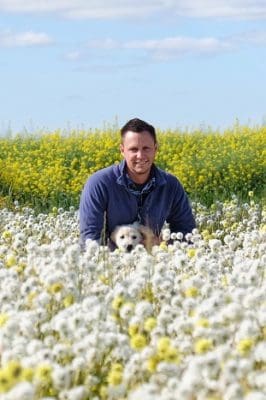

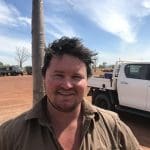
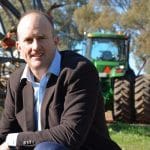
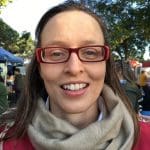
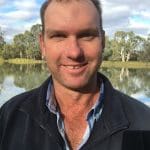
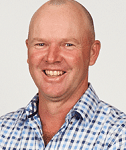
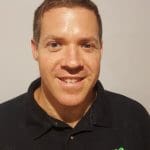
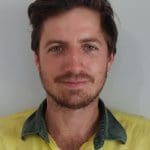
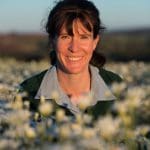
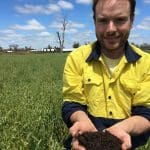
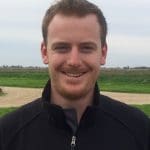


HAVE YOUR SAY